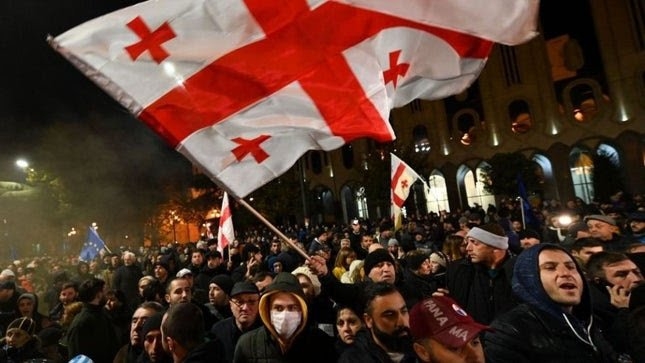On October 31, Georgia will demonstrate that democratic elections can be conducted even amid a global pandemic and despite Russian interference. In an insecure South Caucasus, where the war between Armenia and Azerbaijan is reigniting, and amid escalating conflicts in Russia’s North Caucasus, Georgia is an island of stability whose importance to the West is growing. The country continues to consolidate its democracy, pursue economic development and secure its place in the NATO Alliance.
Parliamentary elections are a milestone for Georgia in pursuing its Western orientation. This was confirmed by U.S. National Security Adviser Robert O’Brien in discussions with Georgian Prime Minister Giorgi Gakharia to expand the U.S.-Georgia partnership. Gakharia emphasized that Georgia is determined to hold free and fair elections. Since Russia’s invasion in 2008 and the seizure of two Georgian regions, Vladimir Putin’s regime has tried to block the country’s Western integration and subvert its political system. Democratic elections certified by international institutions have in the past and will again this October confirm the country’s resilience and progress.
Georgia has been effective in handling the COVID-19 pandemic, with one of the lowest infection and death rates in the world, thus allowing citizens to safely go to the polls. Its democratic institutions have been steadily consolidated since the first peaceful transfer of power in 2012. It has held five nation-wide elections – at presidential, parliamentary and local levels – that were judged free and fair by international observers. In 2017-2018, the ruling Georgian Dream party led efforts to enact major constitutional reforms that transformed Georgia into a parliamentary republic.
This June, the Georgian parliament, encouraged by Washington and Brussels, adopted a package of constitutional amendments that modified the electoral system to a predominantly proportional one. This guarantees that a wide spectrum of opposition parties will be represented in the next legislature. Until now, parliament was elected according to a mixed proportional-majoritarian system that favored Georgian Dream. In addition, a 1 percent electoral threshold for political parties to enter parliament will dilute Georgian Dream’s share of the vote and broaden the next ruling coalition.
At a time of growing centralization and party monopolization in several Central-Eastern Europe states, including Hungary and Poland, it is rare for any incumbent party to institute reforms that will actually increase the chances for opposition parties to gain parliamentary representation. The slew of reforms will ensure increased accountability of the government to the legislature, improve parliamentary oversight, enhanced the powers of the opposition and set the stage for fully proportional elections in 2024.
In the midst of Georgia’s democratic reforms, Putin’s Russia remains a threat to its territorial integrity, economic development, national security and Western integration. Russia’s occupation of the Georgian territories of Abkhazia and South Ossetia (Tskhinvali region) is intended to disqualify the country from NATO and EU membership. The EU’s EUvsDisinfo monitoring has exposed how Kremlin disinformation targets Georgia to discredit its democracy and reverse its Western course. Russian sources also incite extremism to promote social conflict and turn Georgia against Europe. They claim that Western values will destroy Georgia’s heritage and that Western integration will dilute its national identity. Despite the assault, the government and the majority of citizens have remained steadfast in their trans-Atlanticism. In a National Democratic Institute public opinion survey conducted in early 2020, support for NATO integration stood at 74 percent and for EU accession at 82 percent.
Located at the crossroads of Asia and Europe, Georgia is a stable market economy that benefits from international trade, tourism and transportation. It ranks seventh in the World Bank’s 2020 Ease of Doing Business Index and twelfth in the Heritage Foundation’s 2020 Economic Freedom Index. Georgia’s government has also committed itself to greater transparency in its legal, regulatory and accounting systems and to more resolutely tackle high-level official corruption.
The government has earned public credit for its handling of the pandemic, but like other European states it faces an economic contraction in 2020 of about 5.5 percent precipitated by the virus. To attract new investment, the incoming administration will need to pay greater attention to developing its economic infrastructure, including the expansion of the Batumi and Poti port terminals and the construction of a deep-water port in Anaklia. The Black Sea is a strategic bridge between the two parts of South East Europe, and Georgia is a conduit for energy from the Caspian Basin to Europe, and an emerging transportation and trading hub. Georgia’s security is not only dependent on its military development and progress toward NATO membership, but also as an axle for international business and trans-continental trade.
"Forbes Georgia-ის სარედაქციო ბლოგპოსტების სერია "როგორ გამდიდრდა“ და "საქართველო რეიტინგებში".















